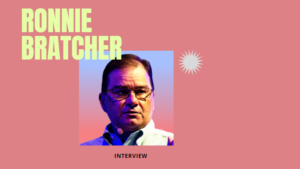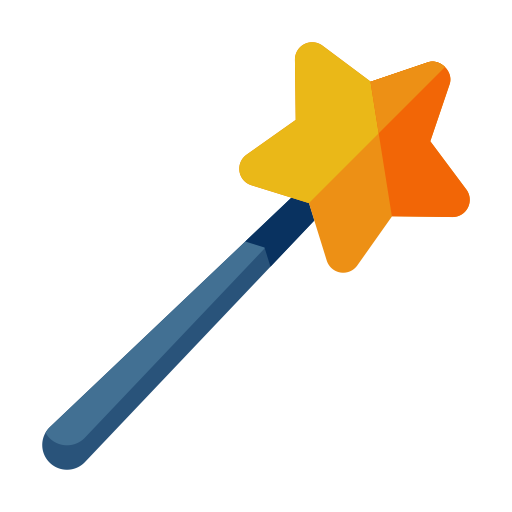
Throughout my professional journey, I have had the privilege of hearing Ronnie Bratcher speak on multiple occasions. Ronnie has been a prominent figure at SourceCon for many years, actively contributing as a presenter, welcome wagon representative, and grandmaster judge. I have observed many other sourcers admiring Ronnie, and I consider myself fortunate to know him personally. He infuses our sourcing community with enthusiasm and innovation, making him a valuable top-tier leader in our industry.
Introduction:
With 23 years of experience in recruiting and sourcing within the Information Technology sector, Ronnie is a highly skilled Sourcing Consultant. He specializes in developing innovative sourcing strategies that can be tailored to fit any business vertical within the recruiting life cycle. Ronnie is deeply passionate about the sourcing process, and in addition to being a practitioner, he has also shared his knowledge as a speaker and trainer at various events, including Sourcing Summit, Sourcecon, The Sourcing Institute, HRTX, Recruiting Trends, Talent42, and Hireconf.
Ronnie began his career in 1999, working for six years in contingency recruiting before transitioning into consulting, where he supported corporate recruiting and sourcing initiatives. He has worked with several well-known organizations, including Microsoft, Avanade, Sears, NCR, Amazon, Guidewire Software, Carbon Black, Pindrop, Grindr, BigCommerce, Farmers Insurance, Onica, Nielsen, and VillageMD. Ronnie previously served for 18 years as a Board Member and Social Media Manager for the Technology Association of Georgia Recruiting Society. He is a Lifetime Member of ATAP, and a graduate of The Sourcing Institute and Sourcecon Academy.
What inspired you to become a sourcer, and how did you get started in the field?
I accidentally stumbled into Recruiting in 1999. The president of a staffing firm contacted me because I had the keyword recruiting on my resume, but my former career was a Store Manager for Target Stores, but I was curious and interviewed with him and that is how I got started in recruiting I worked in contingent staffing for several years and before sourcing was a buzzword, I was always trying to find different ways to connect and find people. Remember this was before LinkedIn, Google and tools/extensions ha ha. I really enjoy finding people in alternative avenues so that inspired my career progression up to this day!
How do you stay up-to-date on the latest sourcing techniques and tools, and what resources do you rely on?
I’m always trying to read articles, blogs and been networking since I started in the recruiting field. I also learn a lot at the conferences/webinars I attend and have always had a strong circle of friends to collaborate with. With today’s overload of information, I try to select a few a day to read. With having full time projects, it is hard to read everything, so choose what I feel is relevant and go with that.
I’ve seen you speak at several conferences – what’s been your favorite and why?
Wow, that is a tough one. Honestly, I love all the conferences I have attended and presented at. I have presented at HRTX, Sourcecon, SOSUEE, SOSUEU & SOSU Estonia, HireConf, ATAP, Recruiting Trends, Talent42, SourceU, Hackerearth and TechRecruit. Each conference brings something different, and each has their own personality and vibe. But to kind of answer your question, I have made so many friends at HRTX, SOSU and Sourcecon over the years and always cherish being within these communities whenever possible.
Can you tell me about a particularly challenging sourcing project you worked on and how you overcame the difficulties?
There are so many of these! Instead of naming one let me tell you about my thoughts on how to overcome when you encounter this situation. First, take a step back, analyze the big picture, evaluate what the problem is and break it down into steps. Define a possible solution and then share with who you’re supporting or manager and maybe even your peers. Having a support system is important as every sourcer is unique and possibly think of a solution that could integrate with your problem. Then execute and do not be afraid of failing. Pick your self up and try again with a different approach. Sourcing is not easy, every project is unique and delivering a solution is always rewarding.
How do you prioritize your sourcing efforts when working on multiple open positions at once?
As a Sourcing consultant, I like to give each profile equal time based on priority and difficulty factors. So, if I have 8 requisitions, I will provide 1 hour sourcing effort for each requisition, If there is a higher priority then more time and focus will be spent on building the pipeline. The key is to ensure there is open communication between you and the person (recruiter, manager, etc.) to set priorities and expectations.
What metrics do you use to measure the success of your sourcing efforts, and how do you use that data to improve your strategies?
Oh, this is such a controversial subject. I am a lifetime member of ATAP and in 2018 I volunteered to help write and develop a white paper on Sourcing Metrics. I worked with 14 amazing smart people for a long period of time dissecting a standard that could be integrated into any sourcing model. Personally, I hold my self-accountable for 3 certain metrics: Acceptance Rate, Pipeline Conversion and Sourcing Satisfaction.
Can you talk about a time when you had to source for a particularly niche or hard-to-fill role, and what steps did you take to find qualified candidates?
I worked on a project to hire SharePoint Architects for a consulting firm who travels 100%. These types of consultants do not usually post their information to a job board. My strategy overall was to network versus recruit these types of individuals. I spent my first few months being accepted into forums, social groups (Twitter, Facebook, LinkedIn, Meetup, etc.). My goal was not to recruit but to connect and network. My next step was to work with the VP of the team to develop an Executive Value Proposition that I could share as I was networking. I also used a video outreach tool to personally engage and connect 1:1 as well. Thankfully the project lasted almost 3 years, so I was able to develop a healthy pipeline and we were able to consistently onboard these consultants and grow this practice.
How do you approach building relationships with passive candidates, and what strategies have been most effective for you?
My approach is not to recruit a person, but to introduce the organization and create a conversation. Then if I feel like there is a interest then share what I am working on and determine between the two of us if we should proceed further or connect a a later time. In the long run, you want to set up a positive experience as this person could become a potential customer or user of the organization you are recruiting for.
What’s your predictions on the sourcing field in 10-20 years?
In the past 20+ years I have seen Sourcing evolve into a viable process and career on its own. My prediction is this role will become very technical to understand how technology can be utilized and blend into the human interaction without it being over robotized. I think we will still be debating the definition of sourcing and will still not agree of what the true sourcing process is and when recruiting starts. I also believe that the tools will help us but the actual of talking to a human will still be in existence.
Finally, what advice would you give to someone who is just starting out in sourcing, and what qualities do you think are most important for success in this field?
Sourcing is not for everyone, but I feel you need to have a sense of curiosity. Always be looking and trying something new. Be open to failure as you will hit roadblocks. Another piece of advice is I truly believe you should be a Recruiter before becoming a Sourcer. You need to understand how sourcing effects the Recruiting process and workflow. Always strive for quality driven outcomes and remember sourcing never ends!
Connect with Ronnie Bratcher:
Feel free to connect with me on my website: Ronniebratcher.com all my contact and social is in this link 🔥
Recommended Reading:
How to create a recruitment dashboard
Creating recruiting policy for rules of engagement
Interviewing Events: How to manage multiple interviewers and candidates well
- The Art of Context: Why Rushing to Conclusions Can Lead Us Astray - April 25, 2024
- Unlocking the Power of Perplexity AI: Why Recruiters Should Utilize This Revolutionary Tool - February 11, 2024
- Exploring AI Interviewing Assessment Tools: A Comprehensive Review - November 30, 2023

I’m a nurse recruiter in Puerto Rico where I concentrate in recruiting talent from here and Mexico to the United States. I’ve been a recruiter for 10 years and most recently I’ve developed a passion for sourcing. I believe it’s a fascinating craft and so important in the recruiting process.